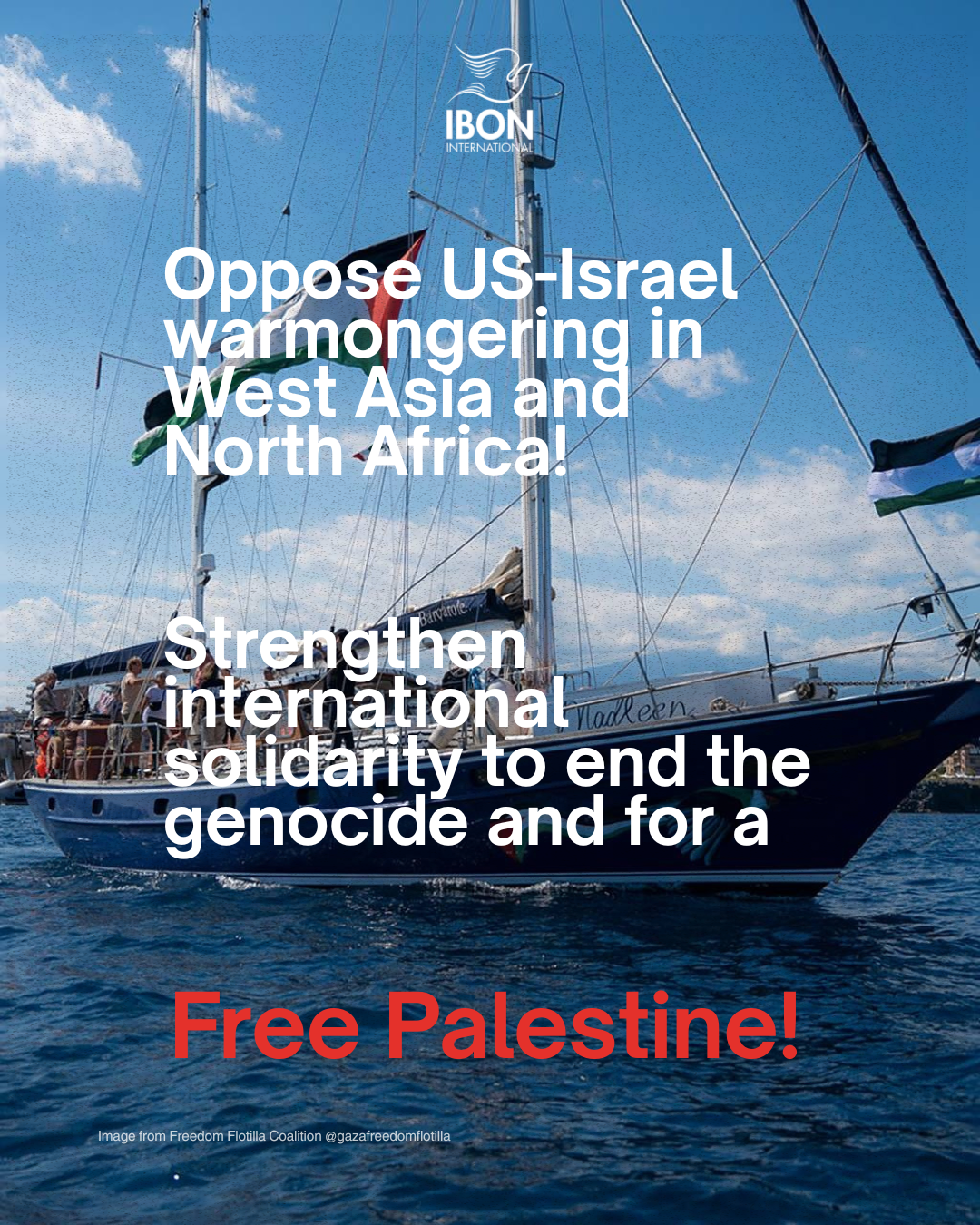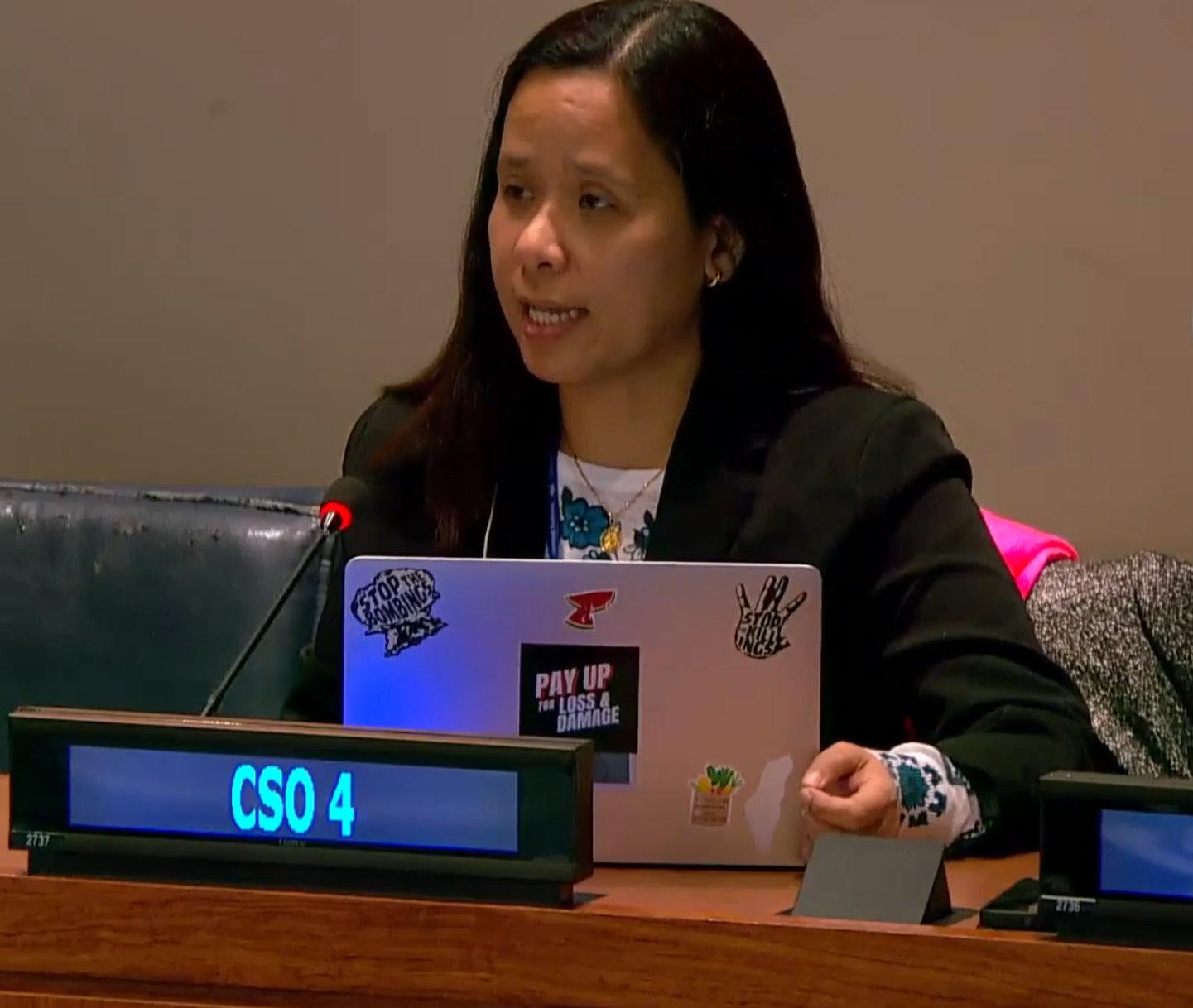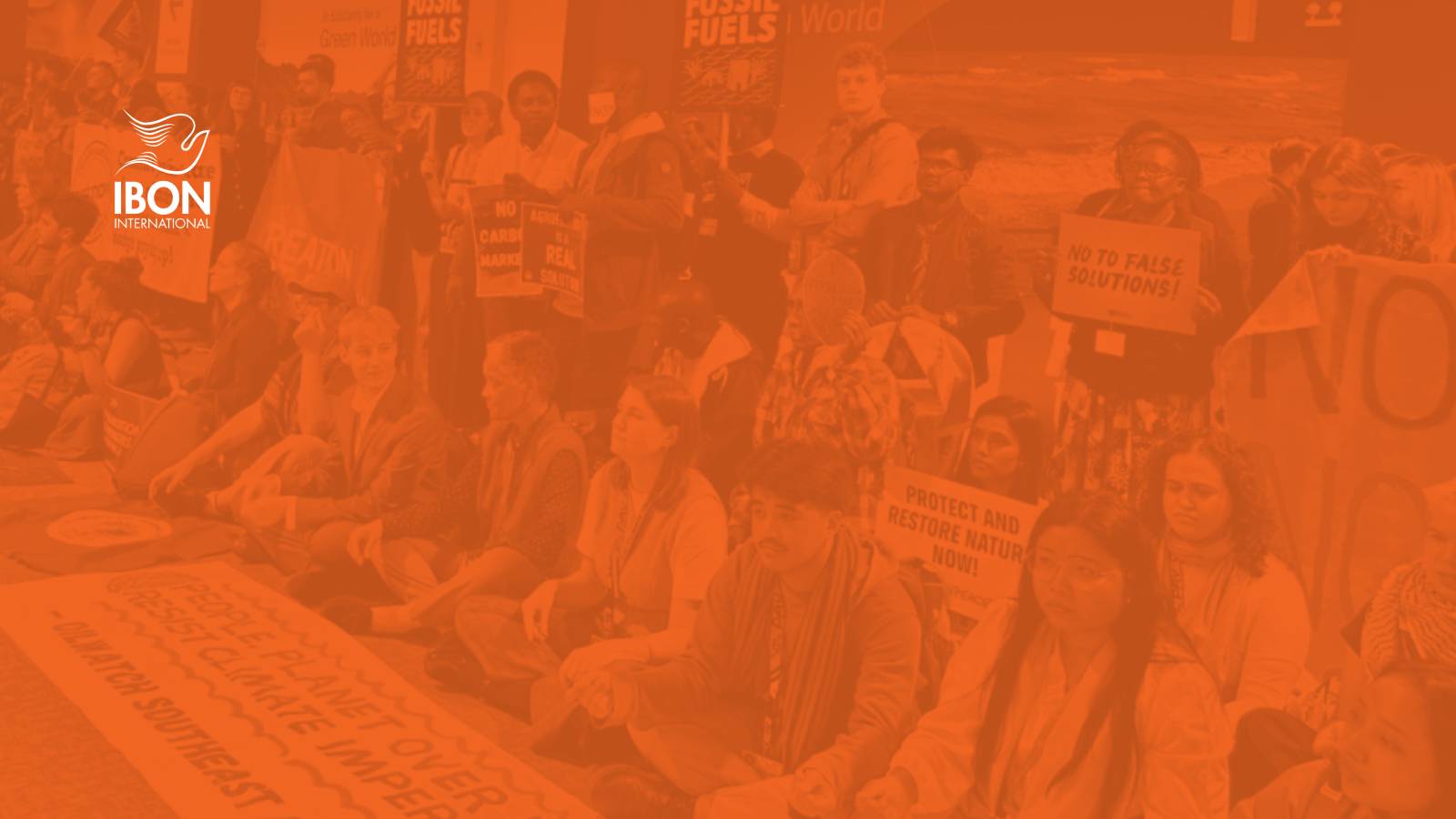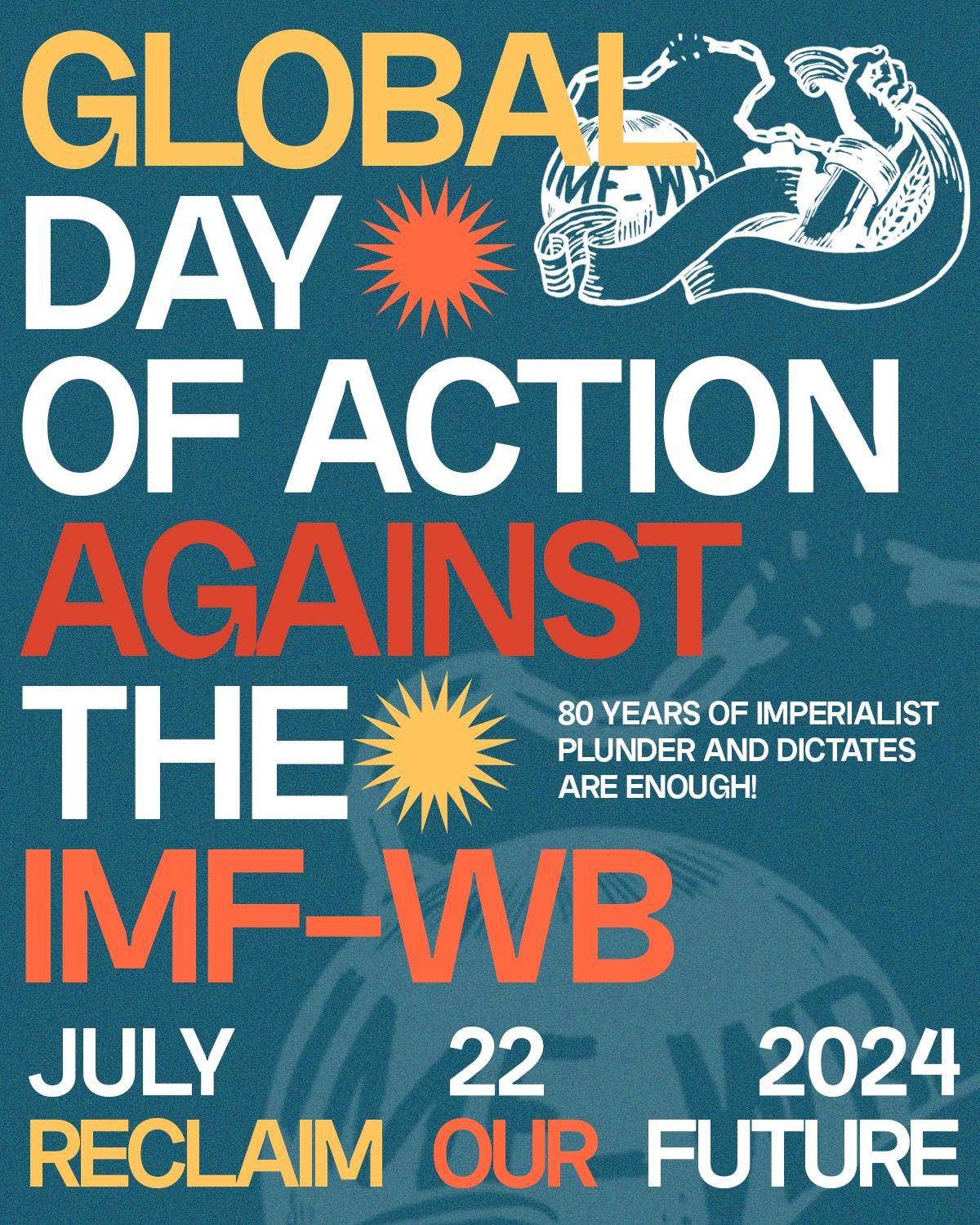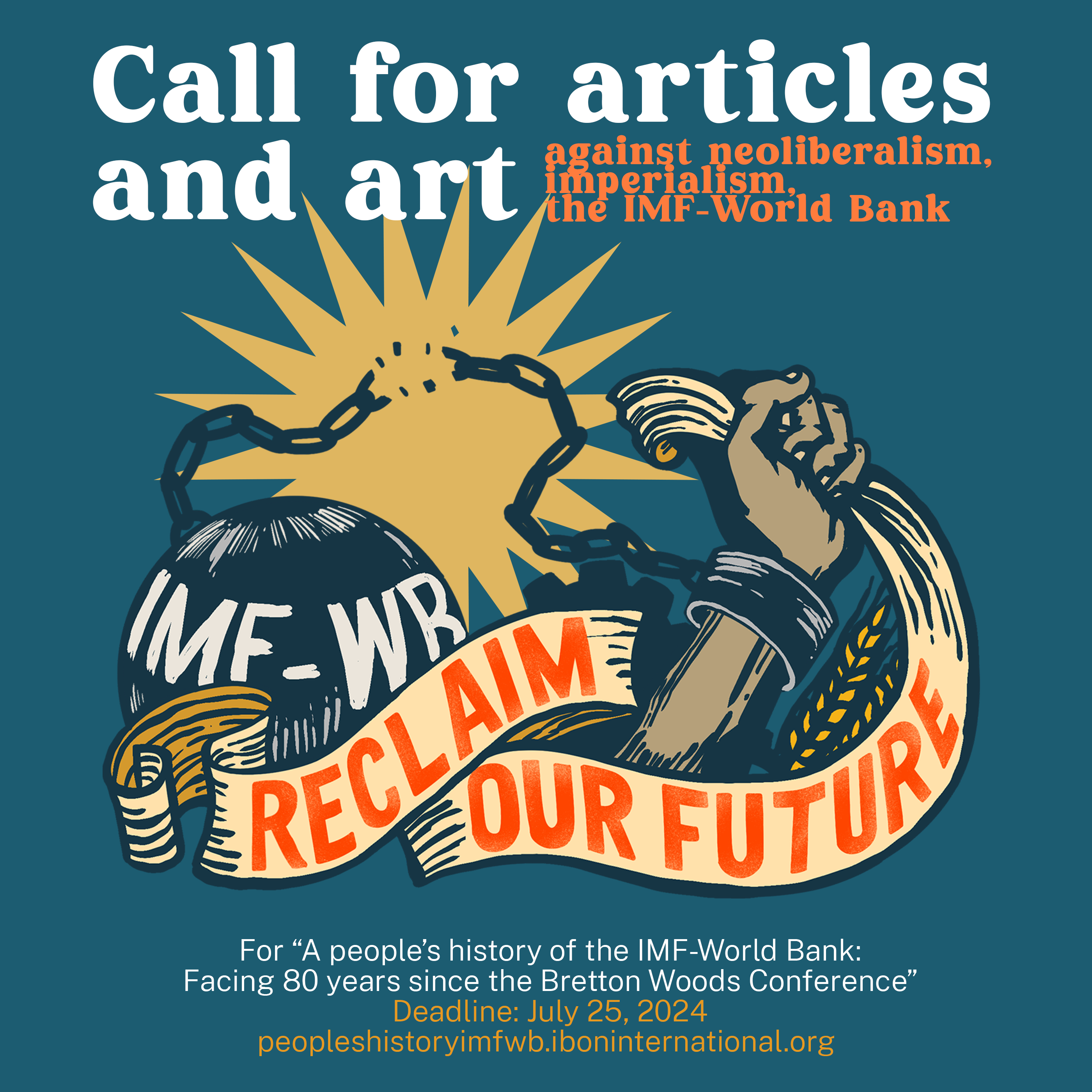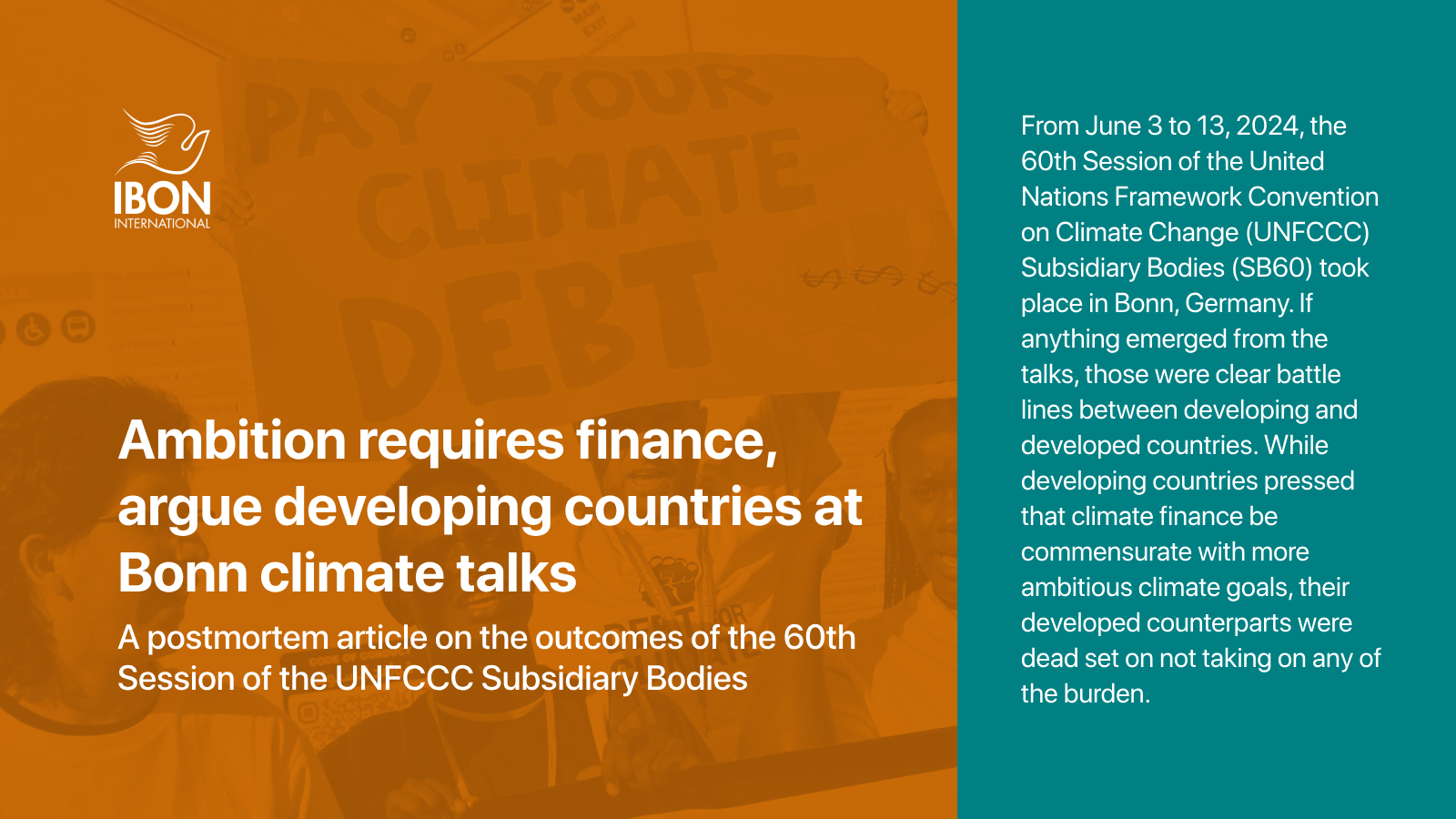IBON International Executive Director, Jennifer del Rosario-Malonzo, delivered the following intervention at “Wellbeing Economies: A new economic approach for human and planetary health,” a Stockholm+50 official side-event. Stockholm+50, a meeting held fifty years after the 1972 UN Conference on the Human Environment, took place at the Swedish capital last June 2 and 3.
***
The approach of Wellbeing Economies presents an important track in pursuing development paths for the global South. It is a promising alternative to the single-minded pursuit of growth. Growth for its own sake often widens inequalities, undermines wellbeing, and drives development aggression against vulnerable communities, especially women. The old model has harmed ecosystems and encroached on Indigenous Peoples’ ancestral domain.
National industrialisation in the global South does not need to take the carbon-intensive path of developed countries. But phasing out fossil fuels in developing countries must be made in an equitable manner, without compromising national industrialisation and the right to development.
For development to be truly sustainable, and to promote wellbeing for the people and planet, it has to highlight the centrality of people’s rights and sovereignty. Development has to promote local, community-driven sustainability practices and indigenous ways of resource management. It should demand accountability from governments and corporations for inimical policies and harmful operations.
Emphasis must be made on community-driven and people-powered sustainable consumption and production practices (PP-SCP), instead of big-ticket infrastructure and growth that do not consider other dimensions of human and planetary wellbeing. In the Philippines, smallholder farmers asserting their right to land are at the same time pursuing agroecology and seed saving to demonstrate practical alternatives to the dominant, corporate-controlled agriculture and to challenge the patent monopoly of seeds.
To conclude, I highlight PP-SCP principles: (1) people’s rights, which presumes the end to repression and human rights abuses; (2) self-sufficiency and people’s sovereignty; (3) support for social innovations and community actions for SCP; and (4) accountability from governments and corporations – to help achieve the transformation for wellbeing that we want for our people and planet. #


